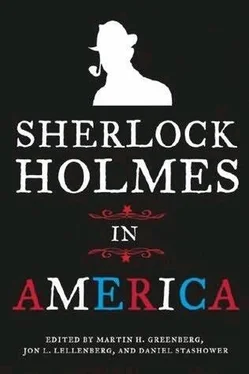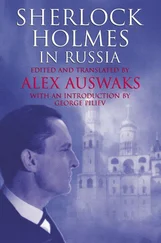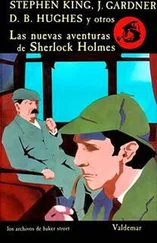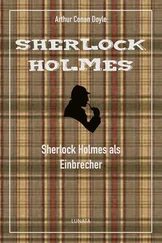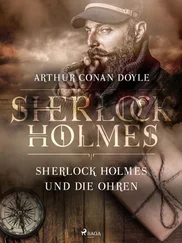Unfortunately, the men were merely hired with the idea that their numbers and manner would prevent problems. Confronted with a true crisis, they dashed off in all directions, shouting at the crowds and each other, shoving people aside, and generally wreaking havoc along the Midway. Men and women clutched their children to them, while those whose offspring had wandered off looked wildly about and cried out for them.
“My word, Holmes!” I exclaimed as the mob surged around us. “What have we done?”
Holmes, though some would not expect it from him, was not without humour. He smiled a thin smile and said, “It seems my uneasiness about the Guard was justified, after all. However, if this massive disorder does not disrupt the plans for the fire, nothing will.”
“But what of those who planned it? Will they not escape in the confusion?”
“It will be our job to stop them.”
“How will we know them?”
“The Ghost Shirts,” said Holmes. “We must look for the Ghost Shirts.”
I recalled the man we had seen in the cabin earlier. I had, at least, observed that much. We forced our way through the throng and were pushed about in return. When we reached the Chinese theater with its tall towers trimmed in red and blue, Holmes tugged at my sleeve.
“There, Watson!” he said, and pointed.
I saw, over the heads of many people, a man dressed in a long black coat, his head covered by a black hat that almost concealed his face.
“That is Wovoka,” said Holmes.
No Ghost Shirt could be seen. “He has taken to wearing the clothing of civilization so as to be unrecognized,” Holmes insisted. “After him, Watson!”
We hastened in the man’s direction, but Wovoka saw us coming. He must have known we pursued him, for he took to his heels. Thanks to the crowd, however, he could move no faster than we at first, but the multitude thinned quickly, as most were drawn to the cabin where the Guard had gone. Wovoka ran faster, as did we.
By the time Wovoka reached the Ferris wheel, we had narrowed the distance. Ahead of us, the gargantuan wheel rotated slowly on the mighty axle, its heavy cars rocking gently as it turned. To my surprise, we saw Wovoka leap up the stairs to the loading platform, thrusting aside those in line, and throwing several of them to the ground and impeding us.
Perhaps he hoped we would be afraid of the machine, or perhaps he thought that he could escape into the sky from its upper heights, and hang suspended while the Ghost Dance changed the world. First, though, he had to board it, but the operators made no attempt to stop the wheel, and the cars were secured by screened windows and locked doors.
Wovoka did not intend to be captured. He leapt from the platform and grabbed hold of the roof of a passing car. Within seconds he had pulled himself atop it. The passengers in the car stood from their chairs and watched in amazement.
“He has trapped himself,” said Holmes as the car moved upward. “In the great circle, he can only come back around to us here on the platform.”
For the barest fraction of a second, I thought of the Reichenbach Falls and of a figure dropping down, down. “Holmes,” said I, “what if he chooses not to return atop the car?”
“Then he does not, but I believe he will, Watson. The Ghost Dance is a circle, and he circles now. He will return to close the circle.”
When Wovoka reached the apex of the wheel’s turn, we watched him rise to stand atop the car, look toward the sky, and spread his upraised arms. It was an amazing sight: the man of the plains rode atop the engine of civilization, stretching out his arms for something he sought, something beyond the power of man or machine to deliver. I do not know what answer he might have sought in the blue and the clouds, but I do not think he found it. He remained firmly fixed atop the car.
The wheel continued in its round, and as his car began its descent, Wovoka sat down cross-legged, his shoulders slumped. When the car reached the platform again, he jumped off, right into the waiting arms of Sherlock Holmes.
I believe he had hoped to be taken up into the sky, until the earth covered us over-me, Holmes, Buffalo Bill, the Exposition itself. Now, however, his eyes were empty of any hope whatsoever.
We sat in Cody’s tent, one even more lavishly furnished than Frank Butler’s. The show was over, and Cody was there. Wovoka was with us, as were Kicking Bear and Short Bull, whom Holmes had retrieved from the Guard while I detained Wovoka at the base of the Ferris wheel. Neither of us had said much then, and Wovoka said little now. Cody did most of the talking.
“You have shamed me,” he told the Indians. “But thanks to Sherlock Holmes, you have been prevented from doing any serious damage. It’s lucky for you he was able to stop the Guard from injuring you, or anyone else.”
Indeed. It was lucky for all of us that no one had been injured in the panic on the Midway.
“If I turned you over to the authorities and pressed charges against you,” Cody continued, “Kicking Bear and Short Bull would be returned to the reservation. Wovoka would go to prison.”
We had learned that Wovoka was, as Cody had suspected, the leader. He had talked the other two into one last attempt to bring back the old days and the old ways.
“I don’t want to see any of you on the reservation or in prison,” Cody said. I could not be sure, but I thought the Indians relaxed a fraction at those words.
“Kicking Bear and Short Bull can stay with me here, where I can keep an eye on them. Wovoka will leave us and swear never to return.”
“Where will I go?” the Indian said.
Cody had no answer for that. He looked at Holmes, who had been sitting silent, as immobile as the Indians. His profile, indeed, resembled theirs as much or more than it did any of his own countrymen.
“Go wherever you please,” Holmes said. “You must know now that the days you long for can never return.”
Wovoka nodded, whether in agreement with the first statement or the last, or both, I never knew. He picked up his hat, which had rested on his knee, and settled it on his head. He nodded to Holmes again, and walked out of the tent without a glance at anyone else, and we never heard of him again.
That evening, Holmes and I rode the great Ferris wheel. We sat in the car with others, perhaps as many as fifty people, and all of us looked eastward. The fairground was bright with electric lights, and the people who streamed down the great street were tiny figures far below. We could see the outlines of imposing buildings stretching away to the dark inland sea beyond.
“I was wrong, Watson,” said Holmes at last. I had to strain to hear him. He gestured to the vista before us. “Revenge was not Wovoka’s motive. This is what he feared. This is what he wished to destroy with his final Ghost Dance.”
“But Holmes,” said I, “this sight is awe-inspiring. This is the future. Surely Wovoka must have realized that as he stood upon the car today.”
The car dipped downward. If Holmes answered, I did not hear, and we never spoke of it again.
RECALLED TO LIFE by Paula Cohen
Paula Cohen (Lady Mary Brackenstall) has been a member of the Adventuresses of Sherlock Holmes since 1975. Born seventy-five years too late, she is a lover of the opera, Gilbert and Sullivan, Old New York, and all things Victorian. A previous short story, “The Adventure of the Dog in the Nighttime,” appeared in Ghosts in Baker Street (Carroll & Graf, 2006). Her first novel, Gramercy Park , published by St. Martin’s Press in 2002, is set in New York City in 1894; she is currently working on a sequel. Paula lives in Park Slope, Brooklyn, with her husband Roger, and her cat, Hodge.
Читать дальше
